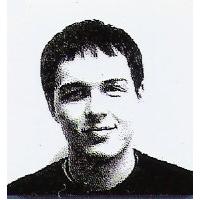Mesaĝoj: 20
Lingvo: English
Stefano B (Montri la profilon) 2007-septembro-23 20:49:24
I could use some advice on how to expand one's Esperanto vocabulary.
Right now I am learning all the words in the "Plej Oftaj Vortoj" category under the tab Learning - Words - Word Learning - By work, and I've completed the first 4 sections. But that will only be a little over a thousand words when I'm finished. In order to be considered competent in the language you have to know at least several thousand words, right?
I think I read somewhere that Esperanto has a certain number of official roots. Does anybody know how many there are and where they can be found?
Dankon,
Stefano
erinja (Montri la profilon) 2007-septembro-23 21:53:29
The words in that section will give you a very good basis. Beyond that, the best way to learn is to read, read, read in Esperanto. With a dictionary at hand, of course. Also, if there's something that interests you, that you enjoy talking about, it's worth learning the words related to that. If you don't like math you aren't likely to spend much time talking about it; if you do like math, you're going to want to talk to people in Esperanto about it, and learning some math terms would be helpful. This applies to any topic, not just math, of course.
The other thing about Esperanto is that the word roots are just the bare minimum. Much of Esperanto involves clever use of prefixes and suffixes with the roots that you already know, to create many more words. In my opinion, an excellent knowledge of Esperanto's affixes, and skill in using them, will take you much further than you can possibly imagine as a beginner, and will in the end serve you better than spending endless hours trying to trace down every common word in the language.
For example, let's say that you don't know the root "lavab/o" (a sink or washbasin). You could speak about a "lav/uj/o" (container for washing), or a "lav/kuv/o" (washing tub), or a "lav/basen/o" (washing reservoir/basin), and you would be understood perfectly, with context. Therefore, knowledge of the fairly basic root lav/ will save you from needing to know a word like 'lavabo'. My Esperanto is fluent but my knowledge of household words is somewhat lacking, probably because it's so easy to speak around them, rather than use what is technically the 'official word' for something.
Quite frankly, after you're finished memorizing the lists of most common words, I wouldn't worry too much about memorizing words. I would focus on reading a lot (you will learn from context), and talking to people (you will learn more colloquial terms that don't necessarily appear in lists like that).
RiotNrrd (Montri la profilon) 2007-septembro-25 01:13:33
erinja:Beyond that, the best way to learn is to read, read, read in Esperanto.And, I would like to add... WRITE.
In my own experience, I can read a word a dozen times and not remember it. But if I write it in a sentence, the next time I find that I am MUCH more likely to remember it.
When I was taking German (many years ago), my first-year German teacher would give us vocabulary quizzes. Any words that you missed, you had to write ten times - both the German word and it's English translation. It was a pain, but honestly - after copying them down ten times, I would never miss those words again.
Now, I don't do that with Esperanto. Instead, I write an Esperanto language blog. Just doing that has greatly expanded my vocabulary. At first it was slow going, but now I can write in Esperanto nearly as fast as I can in English (speaking it that fast is another matter entirely, though).
Stefano B (Montri la profilon) 2007-septembro-25 14:22:42

I want to read more in Esperanto, but the problem is getting my hands on some reading material. I was sent a free issue of the magazine "Kontakto" after completing one of the tests here in Lernu, but I haven't read it yet because I want to finish learning the basic vocabulary first. But other than that magazine, I don't have any Esperanto reading material.
Starting an Esperanto language blog sounds like a good idea, too. What is a good website to blog on? I think there is an Esperanto community on Livejournal.
erinja (Montri la profilon) 2007-septembro-25 14:40:30
You can read Esperanto news at http://www.liberafolio.org/ (News is a good choice because it is usually written in simpler, more straightforward language than fiction)
This is a site I used a lot as a beginner - it is a vast archive of literature in Esperanto, both originally in Esperanto, and translated from other languages.
http://donh.best.vwh.net/Esperanto/Literaturo/lite...
RiotNrrd (Montri la profilon) 2007-septembro-25 14:40:43
Stefano B:Starting an Esperanto language blog sounds like a good idea, too. What is a good website to blog on? I think there is an Esperanto community on Livejournal.I started with Blogger. Then, after I discovered some reliability problems, moved over to WordPress, where I haven't had a single issue. Really, any just about any blogging service will probably do the trick.
mnlg (Montri la profilon) 2007-septembro-25 15:50:51
Stefano B:I was sent a free issue of the magazine "Kontakto" after completing one of the tests here in Lernu, but I haven't read it yet because I want to finish learning the basic vocabulary first.Kontakto has a few articles tagged as "facila" or "tre facila", using only a very limited vocabulary. In some issues this minimal vocabulary is also listed, but I haven't read a copy of Kontakto in ages. Those words though should be easy to look up in most if not all dictionaries, online or otherwise.
Miland (Montri la profilon) 2007-oktobro-02 20:51:22
Stefano B (Montri la profilon) 2007-oktobro-03 01:28:38
Miland:Try Juna Amiko to begin with, and work through Claude Piron's Vere aux Fantazie? That should give you a good foundation. I also recommend studying Baza Esperanta Radikaro. But all this will only strengthen your ability to understand the language passively. You also need to use the language creatively (however badly) whether in writing (William Auld's Pasxoj al Plena Posedo (which I am working through at the moment) appears to be quite useful for this) or even better, speaking it in Esperanto meetings and conventions where you practise stumbling along in the language. All this IMHO will gradually persuade Brother Subconscious on our side and help us to attain the El Dorado of fluency.Thanks!
 Where can one find these Juna Amiko, Vere aŭ Fantazie, Baza Esperanta Radikaro, and PaŜoj al Plena Posedo?
Where can one find these Juna Amiko, Vere aŭ Fantazie, Baza Esperanta Radikaro, and PaŜoj al Plena Posedo? Stefano B (Montri la profilon) 2007-oktobro-03 01:30:07
erinja:There is a ton of free Esperanto reading material online.Thank you for those websites!
You can read Esperanto news at http://www.liberafolio.org/ (News is a good choice because it is usually written in simpler, more straightforward language than fiction)
This is a site I used a lot as a beginner - it is a vast archive of literature in Esperanto, both originally in Esperanto, and translated from other languages.
http://donh.best.vwh.net/Esperanto/Literaturo/lite...




